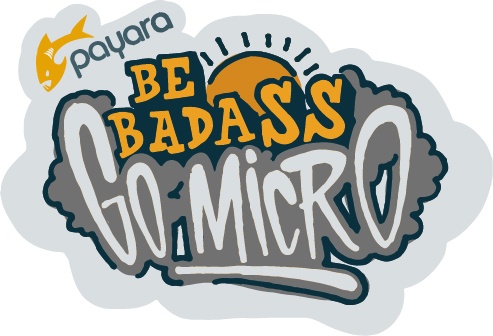Posts tagged Java EE (3)
The Payara Monthly Catch - July 2024
Published on 31 Jul 2024
by Chiara Civardi
Topics:
Java EE,
Payara Micro,
Microservices,
JakartaEE,
Payara Server,
New Releases,
Payara Events,
Payara Enterprise,
Payara Community,
Payara Cloud
|
0 Comments
As August is about to unfold, we take some time to dive into the depths of Payara's resource base to gather for you the best pearls from July on Java, Jakarta EE, cloud computing, application development and devops. Our talented team has compiled an array of invaluable contributions designed to enhance your projects, meaning this month's roundup is packed with insightful guides, tutorials, technical insights and expert advice that you won't want to miss.
Drive Application Security By Leaving Legacy Solutions
Published on 24 Jul 2024
by Chiara Civardi
Topics:
Java EE,
Security,
Jakarta EE,
cybersecurity
|
0 Comments
In an increasingly interconnected and digital world, it is no surprise that there has been a steady rise in the number and cost of security breaches over the last few years. To maximize the robustness and resilience of your applications and prevent any vulnerability from being exploited, it's important for companies to keep everything around their software up to date.
When it comes to application servers, it means using a modern, fully supported solution or upgrading to one quickly. With Java EE-based server runtime environments being outdated legacy software and lacking support, it is essential to migrate applications relying on these to favor an alternative, such as Jakarta EE, to safeguard your applications and data.
The Payara Monthly Catch - June 2024
Published on 26 Jun 2024
by Chiara Civardi
Topics:
Java EE,
Payara Micro,
Microservices,
JakartaEE,
Payara Server,
New Releases,
Payara Events,
Payara Enterprise,
Payara Community,
Payara Cloud
|
0 Comments
As summer sails in, we’re navigating towards exciting new adventures. But before we start exploring what lies ahead, let's cast our nets and haul in the bounty of brilliant contributions and resources from the past month. Crafted by our talented crew to boost your Java and Jakarta EE projects, our latest roundup is brimming with pearls and gems that you won't want to miss, from sparkling tutorials to invaluable insights.
The Payara Monthly Catch - May 2024
Published on 29 May 2024
by Chiara Civardi
Topics:
Java EE,
Payara Micro,
Microservices,
JakartaEE,
Payara Server,
New Releases,
Payara Events,
Payara Enterprise,
Payara Community,
Payara Cloud
|
0 Comments
Avast ye, Payara Community! We are ready to chart our course for new horizons in June, but before we do, let's take a moment to look at all the treasures our old salts developed to power up your Java and Jakarta EE applications. We've collected the best pearls and gems in our latest roundup - check them out now!
The Payara Monthly Catch - April 2024
Published on 29 Apr 2024
by Chiara Civardi
Topics:
Java EE,
Payara Micro,
Microservices,
JakartaEE,
Payara Server,
New Releases,
Payara Events,
Payara Enterprise,
Payara Community,
Payara Cloud
|
0 Comments
All aboard, Payara Community! It's time to hoist the sails and set course for new adventures in May. But before we do, let's take a look back at the treasures we uncovered in April. We've gathered our favorite catches from the depths to share with you, ready to power up your Jakarta EE applications and propel you towards success! Join us as we navigate through the highlights of the month in our latest roundup
The Payara Monthly Catch - March 2024
Published on 29 Mar 2024
by Chiara Civardi
Topics:
Java EE,
Payara Micro,
Microservices,
JakartaEE,
Payara Server,
New Releases,
Payara Events,
Payara Enterprise,
Payara Community,
Payara Cloud
|
0 Comments
The Payara Monthly Catch
Published on 08 Feb 2024
by Valentina Kovacic
Topics:
Java EE,
Payara Micro,
Microservices,
JakartaEE,
Payara Server,
New Releases,
Payara Events,
Payara Enterprise,
Payara Community,
Payara Cloud
|
0 Comments
5 Features You Didn't Know About Payara Micro
Published on 05 Feb 2024
by Luqman Saeed
Topics:
Java EE,
MicroProfile,
Jakarta EE
|
0 Comments
Payara Micro is a lightweight Jakarta EE and MicroProfile runtime optimized for containerization and microservices. Given the rise of cloud native and containerized application deployments, Payara Micro is a great choice for when you need consistent performance from a smaller runtime. In this blog post, we take a look at five Payara Micro features that you may not know about.
Payara Monthly Catch - January 2024 Edition!
Published on 02 Jan 2024
by Valentina Kovacic
Topics:
What's New,
Java EE,
news and events,
Java
|
0 Comments
Happy New Year!
As we step into 2024, let's take a look back at the innovations, events and news that shaped December 2023, and gear up for an exciting year ahead!
Read below for a summary of the most newsworthy, useful and interesting Java industry news, conferences & events, new guides and tutorials.
Easily Manage Different Java Versions on Your Machine with SDKMan!
Published on 30 Aug 2023
by Luqman Saeed
Topics:
Java EE,
Java 8,
Java 11,
Java
|
0 Comments
So, you're a Java developer, or maybe you're aspiring to be one. Either way, you've probably faced the challenge of managing multiple versions of Java on your machine. One project requires Java 8, but another needs Java 11, yet another requires Java 17. The open-source library you're keen on contributing to needs yet another version. What do you do? You start juggling environment variables, and before you know it, your system is a tangled mess of configurations. Not fun, right?
And let's not even get started on the difference between JRE and JDK. It's easy for beginners to get confused about the distinction between the two. The JRE (Java Runtime Environment) is sufficient if you just want to run Java applications, but if you're going to be developing them, you'll need the JDK (Java Development Kit). The JDK includes everything the JRE has, plus additional tools and utilities for developers like the Java compiler, or javac.
Tired of all this complexity? Let me introduce you to SDKMan!, a version manager that streamlines the process, making it a breeze to manage multiple Java versions on your machine. Not just Java, SDKMan! can be used to manage a lot more kits and tools such as Maven. In this blog post however, we see how to use SDKMan! to effortlessly manage different versions of Java on the same machine.


/wellness%20wednesday/wellness-wednesday-jess-1.jpg?width=500&name=wellness-wednesday-jess-1.jpg)


